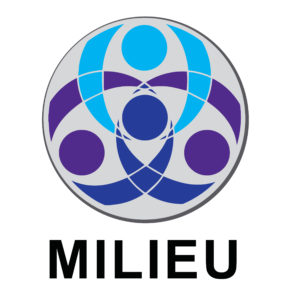
CORE© (Minami, 2017) is a helping skills training program developed by Dr. Masahiro Minami (Associate Professor, Faculty of Education, Simon Fraser University). CORE© was originally designed and developed to meet the training needs of staff, supporting child and youth in care in compliance with the accreditation standards of CARF® International.
CORE© features a diverse set of training modules (Ref. CORE Palette©). Each module is designed to be configurable, customizable, and/or individually deliverable to meet the specific purpose, mandate, and/or budgetary needs of an organization and/or agency. CORE© Individual programming includes consultations for collaborative designing and ongoing implementation support. Mixed-methods CORE© Evaluation is also available depending on organizational/agency accreditation needs.
CORE Essentials© feature 3 (recommended and progressive) modules of Knowledge, Skills, and Conduct, with an option to add CORE Risk Assessment Protocol© as part of the Skills.
CORE Knowledge© delivers necessary information through self-directed reading material. CORE Knowledge© material covers 16 domains of knowledge (e.g., the impact of loss and grief, trauma, FASD), reflecting domains required by the Employment and Community Services Standards Manual by CARF® International. CORE Knowledge Test©(multiple choice) is available as an accountability measure to aid implementation.
CORE Skills© consists of CORE Microskills© and an optional CORE Risk Assessment Protocol©. CORE Microskills© offers 23 sets of foundational evidence-informed relationship-building and helping skills. CORE Microskills© consists of 4 full-day (8 hours) intensive modules (32 hours in total) designed to train trainees in practical helping skills. CORE Microskills© training exclusively employs dynamic role-plays and simulated experiential exercises to ensure skill acquisition and absorption. CORE Risk Assessment Protocol© involves the development of and training in risk assessment, reporting, and management system harnessing existing organizational, agency, and community resources.
CORE Conduct© exposes trainees to 6 essential principles entailed in ethical decision-making. CORE Conduct© utilizes simulated scenario-based discussions to nurture trainee capacity for ethical decision-making. Possible scenarios that ‘raise red flags’ to the rights and dignity of individuals supported and hinder conducive working climate and collegiality are introduced. Then, trainees are asked to articulate possible ethical approaches and behavioral steps to handle/manage such scenarios through simulated role-plays.
A wide range of advanced helping skills module called CORE Xs© are also available, offering advanced additional helping strategies and skills informed by empirically supported intervention approaches, such as cognitive-behavioral therapy, behavioral activation, mindfulness-based stress reduction, and Morita therapy. CORE Xs© are only available to trainees who successfully completed CORE Essentials© and are not included in the essential package.
CORE Trainers© train and evaluate trainee performance, and extensive feedback is provided. CORE Skills© is evaluated on a pass/fail basis, and an unsuccessful trainee can be required to repeat the training. It also serves a gatekeeping function, ensuring quality of helping skills acquisition.
CORE Infra© is available for capacity development and sustainable implementation. CORE Audition© selects from the previous trainees, outstanding and exemplary individuals who demonstrate solid understanding and skills from the CORE Essentials©. CORE Train-the-Trainer© trains the selected individual to become CORE Trainers©. Performance quality and fidelity can be monitored through CORE Check© quarterly. CORE Mentor© and CORE Reflective Practice© utilize a peer-to-peer support model for continuous quality assurance.
CORE Life/Ecology© modules nurture and enhance the day-to-day quality of life of individuals under care as a foundation of individual care planning. CORE Clinical© is exclusive to organizations and/or agencies with the capacities and mandates to provide clinical/mental health services.
If your agency/organization/institute is interested in adopting/implementing CORE© program, email Dr. Minami for more information.
Dr. Masahiro Minami: mminamia@sfu.ca
Project partners:
Milieu Children and Family Services

Kumamoto University
